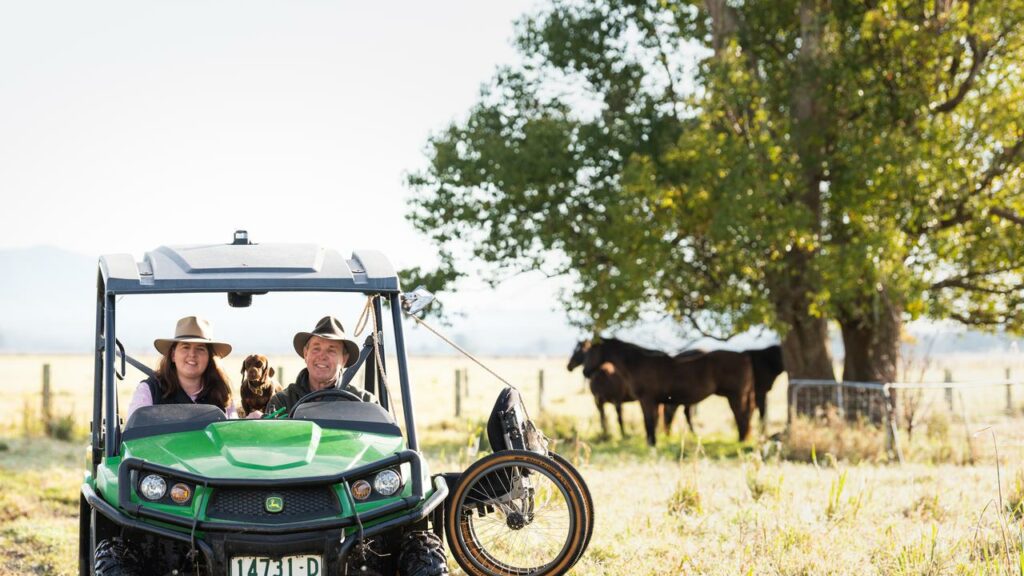Farming and disability tear down the barriers together
Liv Casben |

When Josie Clarke was five, her dad had a truck accident on the way to Sydney from their home on the NSW mid north coast.
It left the father of four a paraplegic and would change life for his family forever.
Twenty years on Ms Clarke recalls the struggles they went through adapting to a new normal despite being often told they should sell up and get out of farming altogether.
“It wasn’t how do we stay in agriculture or how do we make our business more accessible,” she says.
But instead of taking that advice, the Clarkes adapted.
“Mum was one of the first ladies who got her truck license in our hometown,” Josie adds.
“It was so she could take the cattle to the yard because dad couldn’t do it anymore.”
The experience left an indelible mark on the then youngster but it wasn’t until years later, during a visit home, that a conversation with her dad sparked her passion to affect change.
“I was asking him if there was a support group for people with a disability in agriculture that you can go to, and he said ‘no’.”
It was all it took for her to set up an online community for people with disabilities to share their experiences, good and bad.
“For me, it was realising we don’t even talk about people with a disability in our industry and yet there’s so many amazing people in our industry with a disability,” Josie says.
“And my dad’s one of them.”
Glen Clarke continues to work his property near Kempsey and Josie now runs Ability Agriculture, a group encouraging those living with disability to stay with or move into farming, and extends to carers, family members and health professionals.
The 25-year-old says if agriculture can accommodate people with extra needs it will go some way to solving the sector’s labour shortage.
“A business or a local farmer, who’s never actually employed someone with a disability can actually have that opportunity,” she says.
The charity’s newly-appointed board of seven non executive directors last week met for the first time, while the group has also received a grant to build a careers site.
Dozens of businesses and disability employment services have already registered.
Ability Agriculture is Josie’s second job on top of her full-time agricultural career in grains research, someting that gives her additional perspective.
“For an industry that has some of the highest workplace accidents that lead to disability ….we have no real genuine rehabilitation of farmers back into our industry,” she says.
Fourth generation Queensland cane and cattle producer Shawn Kleinschmidt is a case in point.
He felt alone and isolated when he lost his leg in a farming accident six years ago. Yet after four months in hospital learning to walk with a prosthetic limb he was determined to return to the land.
Mr Kleinschmidt went back to work the same day he was released from care but admits there were many dark days.
“I was a bit scared,” he tells AAP.
“Just having to deal with it for a long time just by myself and having discover everything for myself.”
Now an Ability Agriculture advocate, he laments the fact it wasn’t around when his own ordeal happened.
“Even just seeing other stories of other farmers, it brings alot of inspiration,” he says.
“I wish I had seen them when I lost my leg. It would have saved alot of strain on my mental health.”
In February Ability Agriculture helped the 32 year old and his partner travel interstate to a major agricultural conference to share his story and learn from others.
Josie Clarke says it’s important those with a disability are seen and heard.
“We need more people in the room with disability representatives at our conferences, listening and learning,” she says.
AAP